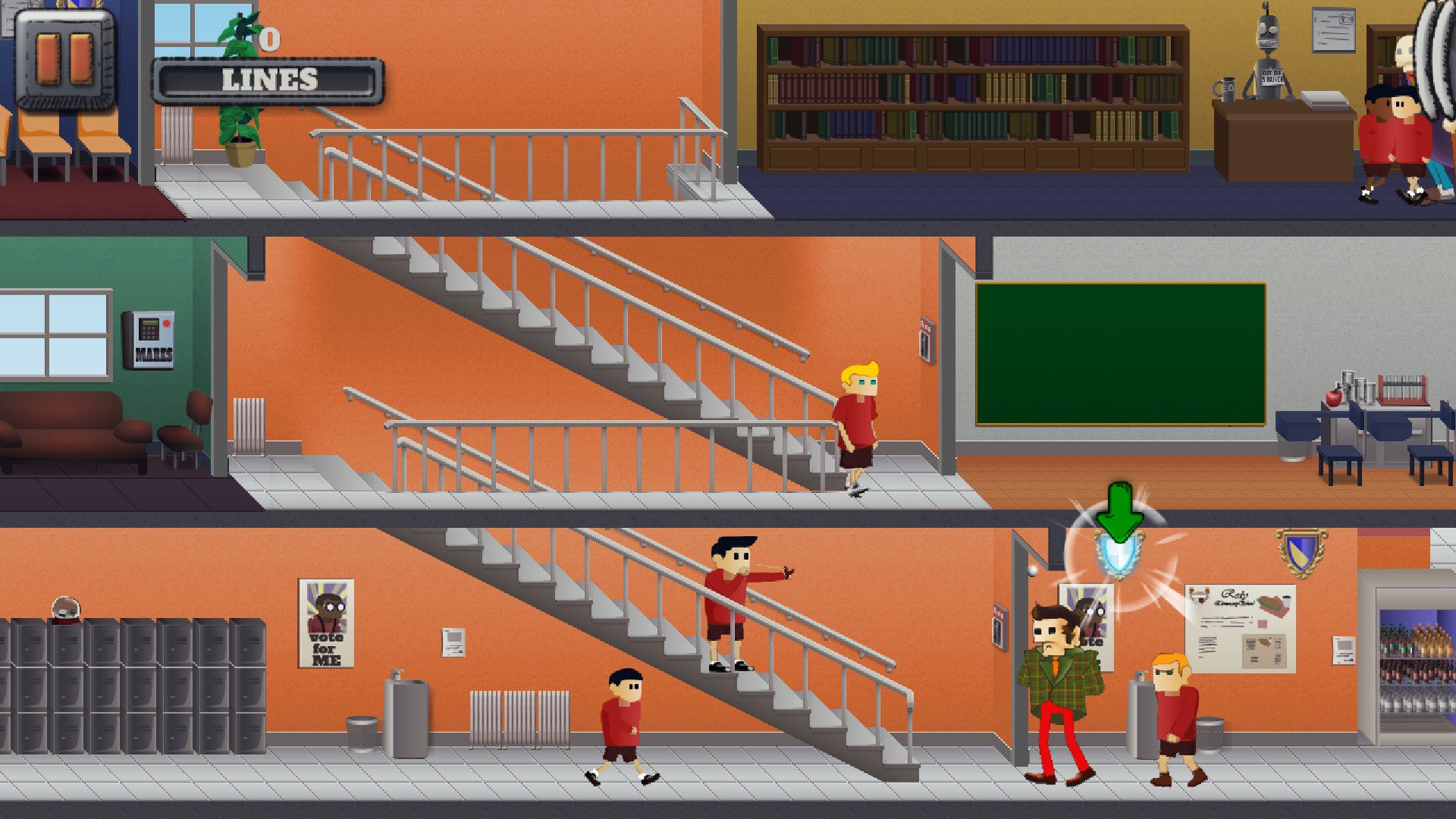When it comes to teaching, things like union strikes over pay and lengthy holiday time relative to other jobs may come to mind, but being a school teacher is about so much more than that. As a school teacher you are interacting with so many different people, not just pupils, and it’s crucial that you form strong bonds with these people to thrive in the role. Imagine the social management aspects of Persona 5 on a colossal scale. There are faculty staff, departmental heads, heads of year groups and overall heads of the school. And that’s just internally. Liaise with someone to deliver a talk to your students, negotiate prices and arrange logistics for a field trip, try to acquire the latest textbooks and teaching materials - it’s a vocation that sees you dealing with so many people every day. Of course there are only a certain number of hours in a school day, and a game could see you choose which bonds you’d best like to focus on, perhaps with a real-time aspect, so you could truly feel each second ticking by. A large part of school life is obviously lived in the classroom, where you are educating your many pupils. Each one of them learns differently though, and although the content is the same, your aim is to help each pupil navigate this content in a way that is most beneficial to them. This is where strategy comes in. Set in a secondary school (because primary education is a completely different beast), a game could see you fine-tune your methods to match your class’ characteristic learning styles. At this stage pupils are between the ages of 11 and 16 (or possibly up to 18 if there’s a sixth form), and you see them steadily mature from children to young adults by the day. Classes can be less authoritarian and more about guiding them to where they need to be, which in itself is a wonderful thing. Nonetheless, teaching your classes is merely a part of the job, and a school teacher quickly learns that every day is wildly varied and unpredictable. One minute you’re covering for your colleagues as a supply teacher, the next you’re on playground duty attempting to diffuse tension before a fight ensues; you never know what’s around each corridor corner. A teacher is forever on their toes (save for select respite moments in the staff room) and a game here would be thrilling as you try to keep pace with your surroundings. If you’ve read this far, you may have surmised that this issue is close to my heart. For a while I worked as a tutor, teaching young people of the aforementioned age demographic. It gave me valuable experience of the challenging but immensely rewarding essence of the job. I only taught students one-to-one or in small groups, and I can’t imagine the incredible amount of work it would take to do a good job on the scale of most school teachers. Naturally I’ve been a student as well, so my viewpoint is from somewhere in between both positions. As I transitioned from student to teacher, I drew on techniques I liked from my own teachers. This knowledge was a vital foundation, which I used to support the learning of my own students. The special thing about teachers is that a particularly good one can have an impact that lasts well beyond school years. One has to remember they are custodians of their pupils, aiding these blossoming, impressionable minds in their development. It’s imperative to engage with pupils as people first; each side can learn from the other to become better at what they do. As I’m writing this, I’m remembering the positive experiences I had with my own teachers, and I don’t think I’m the only one who has done this from time to time. Often many of us reminisce on the kind, wonderful or downright hilarious few special teachers we were blessed to have over the years. A game could show that a lot of hard work goes into creating those blissful memories.
